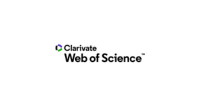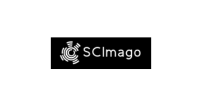FILÉS DE PEITO DE FRANGO (Gallus gallus) INOCULADOS COM Listeria monocytogenes, REFRIGERADOS, EMBALADOS EM ATMOSFERA MODIFICADA E IRRADIADOS: VALIDADE COMERCIAL, MICROBIOTA NATURAL E PARÂMETROS BACTERIOLÓGICOS DE CRESCIMENTO
DOI:
https://doi.org/10.5380/avs.v16i2.18041Palavras-chave:
carne de aves, fase de latência, irradiação, patógenos psicrotróficos, tempo de duplicaçãoResumo
A capacidade de Listeria monocytogenes e outras bactérias de se multiplicarem em filés de peito de frango resfriados embalados em ar, vácuo e em atmosfera modificada (80% CO2/20% N2) e irradiados (2 e 3kGy) mantidos a 1ºC ± 1°C por até 34 dias foi avaliada. As alterações microbiológicas e a determinação do pH das amostras foram monitoradas. Para a determinação dos parâmetros bacteriológicos de crescimento, foi utilizado um programa computacional (DMFit) baseado em microbiologia preditiva. As análises bacteriológicas indicaram que tanto a fase lag como a validade comercial aumentaram com a dose de irradiação. O maior prazo de validade comercial (34 dias) foi alcançado pelas amostras embaladas em atmosfera modificada e irradiadas a 3,0 kGy, enquanto que as amostras embaladas em ar e não irradiadas deterioraram-se no 9°dia de estocagem. As bactérias ácido láticas foram os microrganismos mais resistentes à radiação gama e à alta concentração de CO2, enquanto que os coliformes e as enterobactérias foram os mais sensíveis. L. monocytogenes e Aeromonas spp. foram capazes de se desenvolver em todas as amostras. A irradiação aumentou o efeito bacteriostático da embalagem em atmosfera modificada e aumentou a validade comercial de filés de peito de frango, melhorando a sua qualidade microbiológica, porém não impediu o desenvolvimento de L. monocytogenes quando essa foi inoculada na concentração de 105 UFC / mL.
Como Citar
Edição
Seção
Licença
Autores que publicam nesta revista concordam com os seguintes termos:
- Autores mantém os direitos autorais e concedem à revista o direito de primeira publicação, com o trabalho simultaneamente licenciado sob a Creative Commons - Atribuição 4.0 Internacional que permite o compartilhamento do trabalho com reconhecimento da autoria e publicação inicial nesta revista.
- Autores têm autorização para assumir contratos adicionais separadamente, para distribuição não-exclusiva da versão do trabalho publicada nesta revista (ex.: publicar em repositório institucional ou como capítulo de livro), com reconhecimento de autoria e publicação inicial nesta revista.
- Autores têm permissão e são estimulados a publicar e distribuir seu trabalho online (ex.: em repositórios institucionais ou na sua página pessoal) a qualquer ponto antes ou durante o processo editorial, já que isso pode gerar alterações produtivas, bem como aumentar o impacto e a citação do trabalho publicado.













